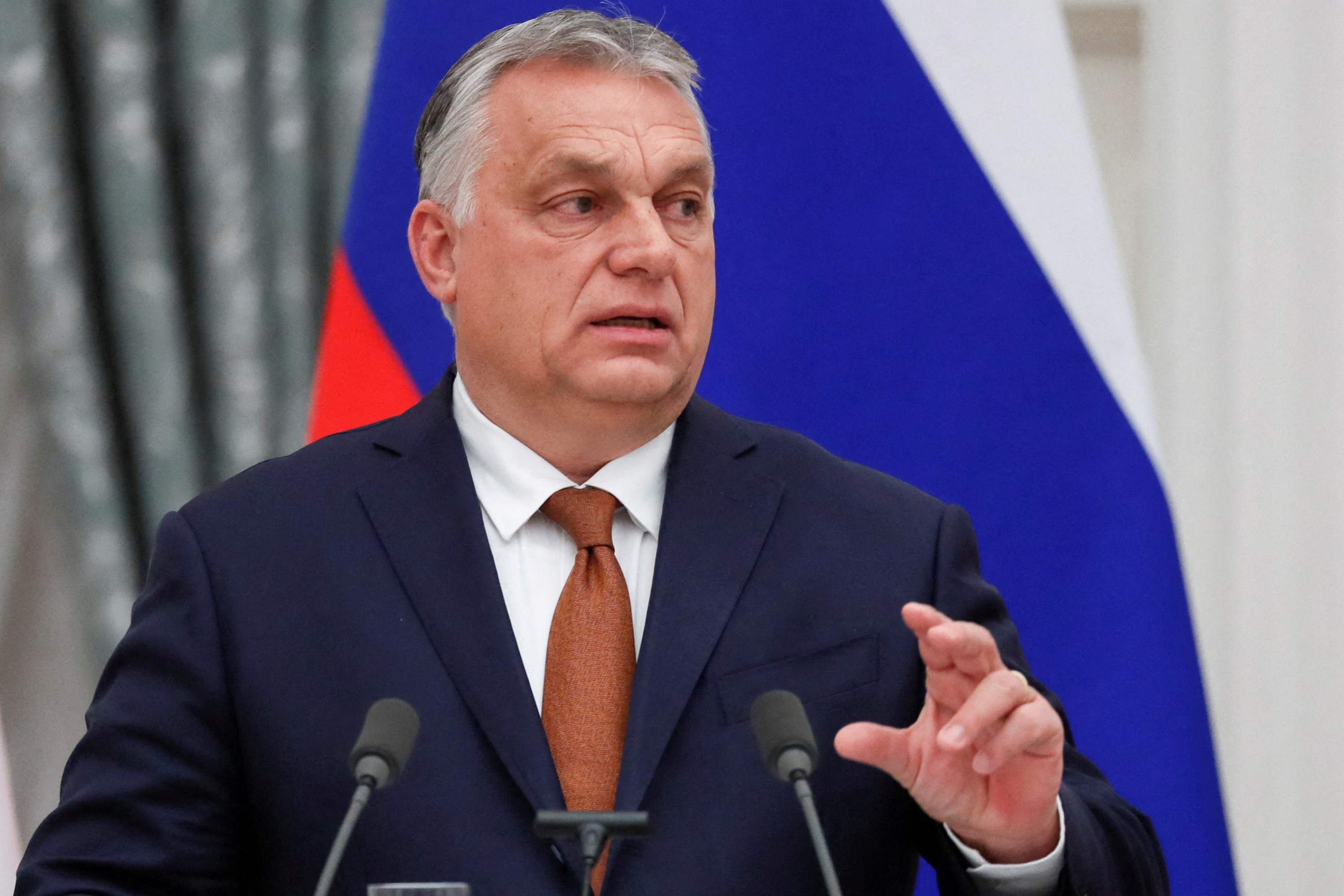Hungary will not veto EU sanctions on Russia: Orban
Sign up now: Get ST's newsletters delivered to your inbox

Hungary's ties with Russia had been "balanced and fair" until the very recent past, but this had changed, Hungarian Prime Minister Viktor Orban said.
PHOTO: REUTERS
Follow topic:
BUDAPEST (REUTERS) - Hungary will not veto European Union sanctions against Russia and the unity of the 27-member bloc is paramount given the war in Ukraine, which Hungary condemns unequivocally, Prime Minister Viktor Orban said.
Orban, who has been strongly criticised by the Hungarian opposition for his friendly ties with Russia, flagged what he called an adjustment in relations because of the war, though adding that should not have an impact on energy deals.
This week, Hungary joined an initiative by eight EU leaders to start membership talks with neighbouring Ukraine, but NATO member Hungary has rejected the transport of lethal weapons through its territory to its eastern neighbour.
"With regard to sanctions, we will not veto them. We will not block the EU from imposing sanctions on Russia. Now the unity of the EU is paramount," the nationalist Orban told the news website mandiner.hu in an interview published on Thursday (March 3).
Hungary's ties with Russia had been "balanced and fair" until the very recent past, but this had changed, he said.
"The start of the war has created a new situation for Hungary too," Orban said. "We need to adjust Hungary's objectives and the Hungarian interests in this new situation."
Orban, 58, faces an election in just over four weeks, but his campaign has been complicated by surging inflation, an EU funding freeze due to a row over democratic standards and the fallout from the war in Ukraine.
"We condemn the Russian attack, as they have launched a war against Ukraine," Orban said.
Russia calls its onslaught a "special operation".
"The sides should return to the negotiating table as soon as possible," Orban said. "All of Europe should be working for peace."
On Wednesday, his foreign minister said Hungary had already accepted more than 100,000 refugees fleeing the war.
Energy shipments
Orban added, however, that there was no reason to cut energy ties with Russia, including a €12.5 billion (S$18.8 billion) deal for Russian Rosatom to expand Hungary's Paks nuclear power plant, which accounts for about half of its electricity output.
"EU leaders have also declared that the sanctions cannot affect energy shipments from Russia, because that would wreck the European economy," Orban said.
"The same applies to the Paks expansion project. Without Paks, we would have to import even more Russian gas at an even higher cost."
Hungary signed a new long-term gas import agreement with Russia last year to import 4.5 billion cubic metres of natural gas per year on routes avoiding Ukraine.
Last month, Orban visited Russian President Vladimir Putin, seeking an extension of the import deal by 1 billion cubic metres per year in a move strongly criticised by the opposition amid the escalating tension between Russia and Ukraine.
Orban also said Europe needed a strong military and defence industry as it could no longer rely on the United States alone for its security.
"The Americans invest a lot more into this than we do. This must change and we should be able to ensure European security with our own means, while maintaining the alliance with the US," he said.
"This challenge entails significantly higher military spending. That is, while we are reducing the budget deficit and public debt, we should make an exception in defence policy," he said.
"The Hungarian stance is in favour of strict fiscal policy, we need the Maastricht criteria, however, we should exclude defence spending from the commonly accepted budget deficit standards."

